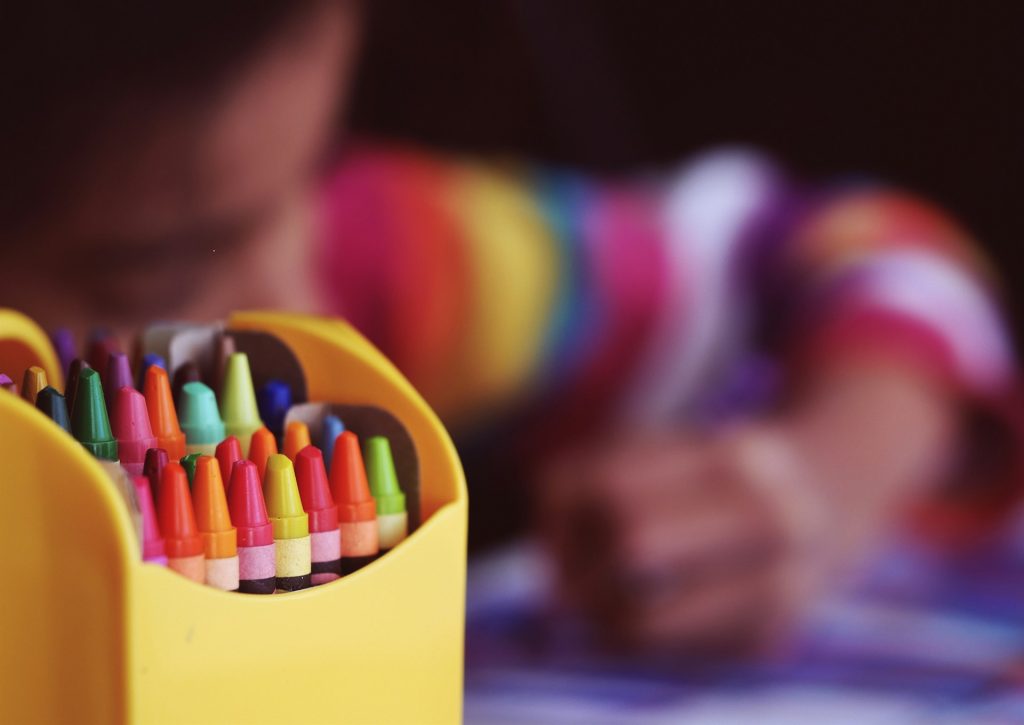Blog
Back to School! Tips to Get Your Child Ready
Preparing for the school year can be easier with the right back-to-school tips. This guide covers everything from organising supplies to setting routines, helping your child start the next school year smoothly. Let’s dive in!
Key Takeaways
- Gathering essential school supplies and creating a well-organised study space can set the foundation for your child’s academic success.
- Establishing a consistent daily routine helps reduce anxiety, improve focus, and fosters good sleep habits for a smooth transition back to school.
- Encouraging independence and celebrating milestones throughout the school year boosts your child’s motivation and helps develop essential life skills.
Gather Essential School Supplies
First things first, get all your school supplies. Having the right tools and materials can make a big difference to your child’s school year. Make a list so you don’t miss anything. This can include coloured pencils, crayons, markers, glue sticks and scissors. A good list will help you stay organised and make shopping easier.
Invest in a good backpack too. Look for one made of tough fabric that can withstand daily use. A good backpack will not only protect your child’s school supplies but also be comfortable and supportive all day. And consider a pencil case to keep smaller items organised and portable. An organised backpack and pencil case will save you time and stress during school days.
A rotating caddy with separate compartments will keep everything tidy at home. This will help your child stay organised and have everything at their fingertips for homework time.
Get all the essentials and your child will be ready for the new school year.

Establish a Consistent Routine
A routine helps to reduce anxiety, improve focus and clarify what is expected from each family member which in turn reduces power struggles within the family.
Start by mapping out a daily schedule with:
- Homework
- Extracurricular activities
- Family time
- Relaxation
This will help your child get into a groove that balances out all the different parts of their life. Having a routine before the school year starts helps with the transition back to school, so begin by gradually adjusting bedtimes and wake-up times to the school schedule. This will give your child enough sleep and be well-rested for the school day.
A structured routine fosters a sense of safety and equips children to handle unexpected situations better.
Create a Dedicated Study Space
A quiet, clean space is crucial for effective studying – helping students maintain concentration and focus. When setting up this space, consider selecting an ergonomic chair to improve comfort during study sessions as comfort significantly impacts productivity and prevents fatigue (at least that is what the evidence points to).
Incorporating natural light into the study space can enhance mood and productivity. Additionally, keeping the study area organised and minimising clutter can reduce distractions and create a more efficient study environment. If space is limited, alternative desk options like wall-mounted or portable desks, or a highsleeper with a desk below can be useful.

Pictured: The Cosmic High Sleeper Frame
Utilise a School Planner
Many parents overlook the need for personal organisers or planners for primary and middle school students. However, the frequent use of a planner to set goals is linked to better academic performance. This is in part because a school planner serves as a tool for developing time management and organisational skills. It helps students consolidate their assignments and projects, making it easier to manage their tasks.
A planner is an effective tool for minimising procrastination and enhancing students’ efficiency. By consistently maintaining a planner, students learn to take responsibility for their schedules. It’s important to include homework due dates and other significant deadlines in the planner to stay organised.
Encourage students to review their planner before starting their homework, as this habit helps them stay on track and manage their time effectively. Additionally, assessing their work regularly can reinforce this positive routine. A school planner not only helps with academic work but also helps students develop valuable skills that will serve them well throughout their educational journey and beyond.
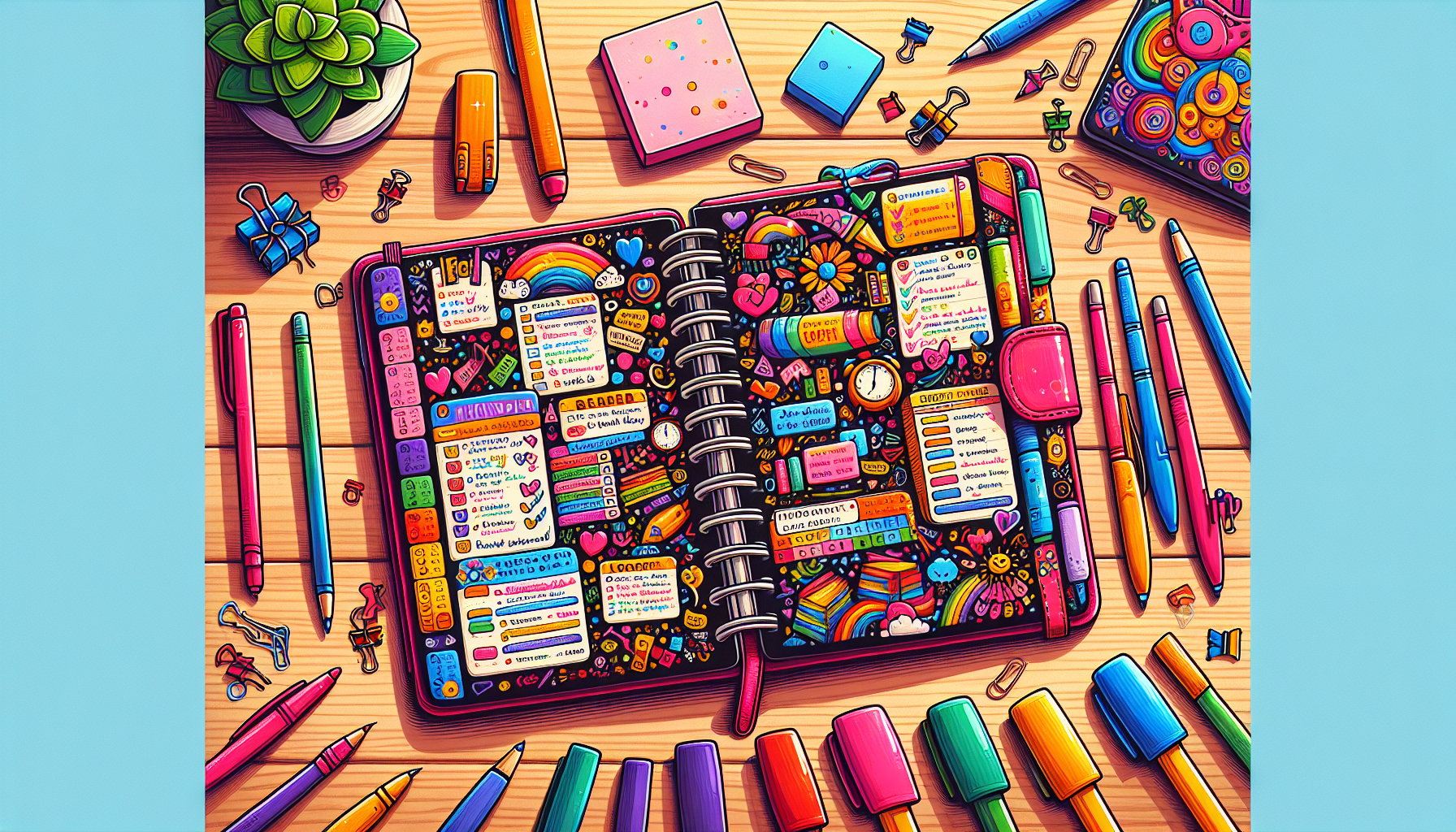
Prepare for Healthy Eating
A nutritious breakfast is essential for sustaining energy throughout the day. Eating foods rich in protein (for example yoghurt, eggs, wholemeal toast) at breakfast can enhance concentration and provide lasting energy. What’s more, sharing breakfast as a family can promote healthy eating habits and set a positive tone for the day – giving you crucial time to connect with your child and see how they’re feeling.
Hunger can negatively impact a child’s classroom performance, and involving your child in selecting healthy lunches and snacks for their lunch boxes can encourage better eating habits and prevent unhealthy choices. Options like granola bars offer a quick energy boost to keep them going during the day- though it’s important to listen to your child when they tell you what they want (or don’t want).
For hydration, water is the best choice for kids’ lunches as it keeps them refreshed without added sugars. A fruit juice is another great option, providing nutrients and a hit of energy to see them through the afternoon. Ideally you would swap between water and fruit juice as juices often contain high levels of sugar.
Communicate with Teachers
Communication between parents, teachers and students is key to progress and motivation. Building relationships in the classroom can help with student engagement and attendance. Parents are encouraged to attend parent-teacher evenings to get feedback from teachers, both positive and constructive. This helps with communication between you and your child and identifies potential issues before they impact on your child’s progress and well-being at school.
Getting positive feedback is important for student confidence and a supportive learning environment. Teachers model good communication by active listening which helps comprehension. By communicating well with teachers parents can support their child’s journey and sort out any issues as they arise.
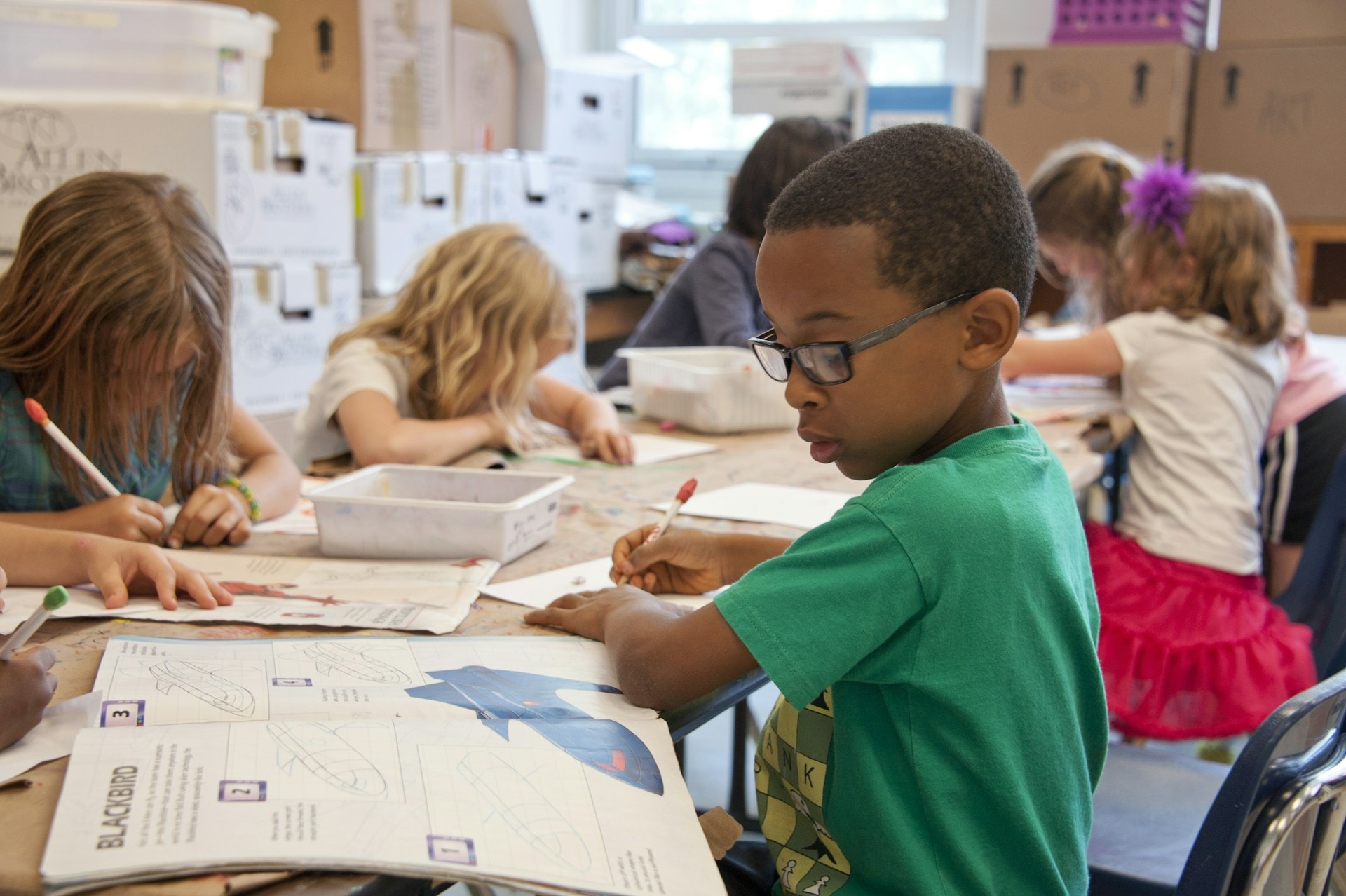
Organise the Entryway
Having an entryway in order can really reduce morning madness and make sure important things aren’t left behind. By designating a spot for backpacks and shoes near the entryway you can simplify the morning. Hooks or shelves will encourage kids to put their bags and jackets away, keeping the space tidy and accessible.
Using clear plastic boxes for shoes and school stuff will keep things organised and make it easy to find things. An organised entrance will make the morning run smoothly, and less stressful for everyone.
An organised entryway not only promotes efficiency but also leads to a calmer start to each school day.
Label Everything
Labelling personal items helps children know what’s theirs, so they don’t get lost or mixed up with others. Personalised labels make school supplies and clothes stand out in shared spaces like classrooms. Stickers or tags on lunch boxes help children remember which one is theirs, promoting self-awareness and accountability.
Clothes labels that don’t need sewing or ironing are a bonus, so you can be sure your child’s uniform is always identifiable. Label everything and your child will know where their stuff is, so lost items are less likely and the school day is more organised and less stressful.
Encourage Extracurricular Activities
Joining extracurricular activities is key to developing a well-rounded skill set for personal and academic growth. Being part of school clubs and activities not only helps you make new friends but also socialise. These are especially useful for college applications as they show a student’s many interests and talents.
Students need to manage their commitments thoughtfully to keep a balance with their academic work. By joining after-school activities children gain new skills and make lasting friendships that enrich their whole school experience.
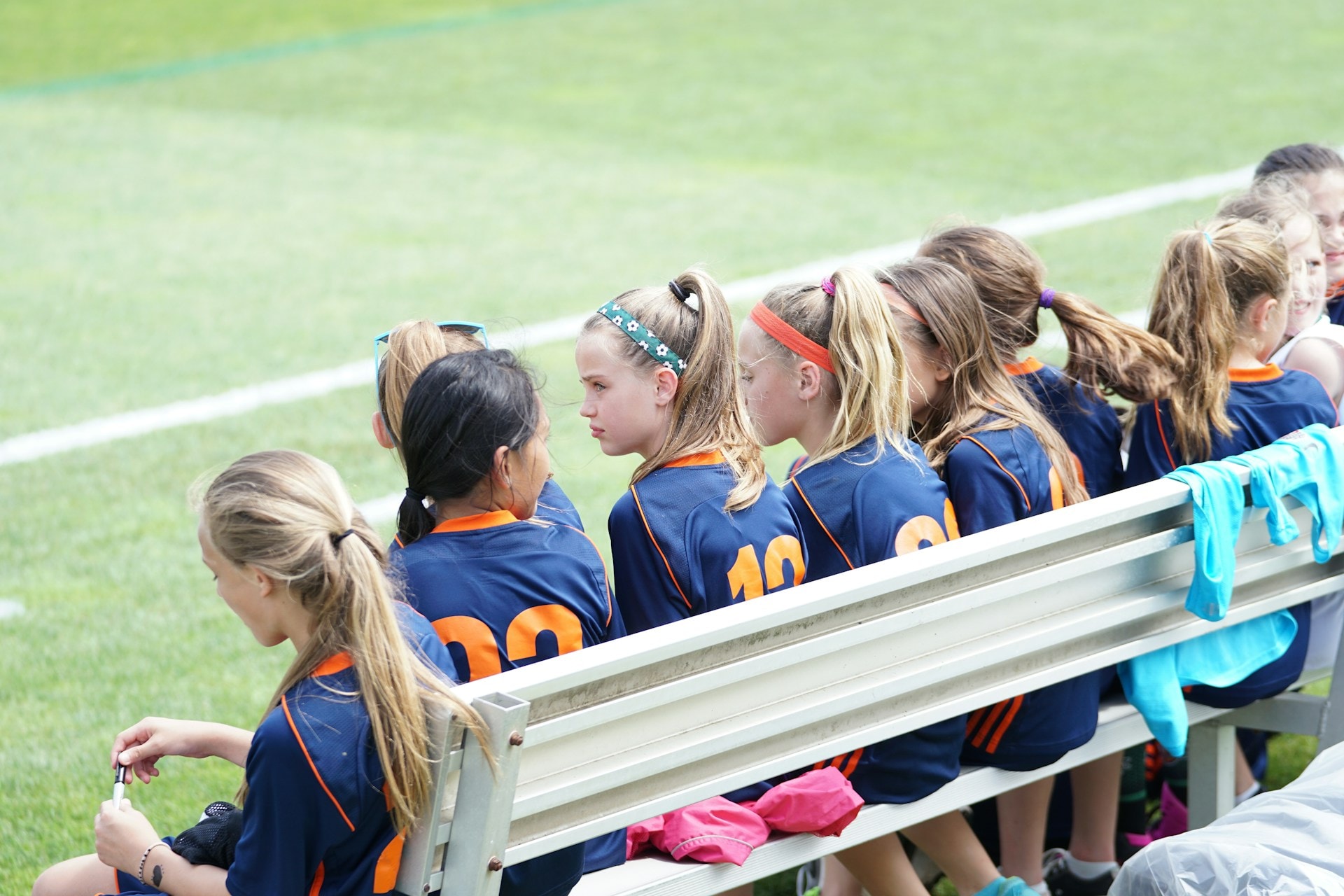
Plan for Safe Travel
Safe travel to and from school is key. Before the school year starts practice the route with your child and walk or drive it with them. Talk to them about the basic travel rules, looking both ways before crossing and pedestrian guidelines. Get them to find a buddy to walk or ride with, this will help with first-day jitters.
If your child is going to cycle to school practice the route with them and teach them to wait until the bus has stopped completely before they get on. By planning for safe travel you can reduce anxiety and make your child feel more secure on their school journey.
Manage Screen Time
Limiting screen time, especially before bed is key to students getting enough sleep. Use parental controls to monitor and limit access to age-appropriate content. Get your child to think about their online activities so they don’t just mindlessly scroll and make their screen time more meaningful.
Encourage non-screen activities like reading or outdoor play to create a balanced daily routine. Good screen time management means healthy habits and your child will get the rest they need for a great school day.
Address First-Day Nerves
Helping your child get used to the school environment before the first day can really help with the nerves. A school tour can help them get to know the place, and meeting teachers beforehand can help with the first-day jitters as teachers are key in helping them settle in.
Talk to your child about how they are feeling about going back to school and let them know they are supported. Remind them of the fun of catching up with old friends and making new ones and it will make going back to school more fun.

Support Good Sleep Habits
A consistent sleep schedule is key to better sleep and overall wellbeing. To figure out the optimal bedtime for your child, count back from wake-up time and help your child stick to it. For example, a 9-year-old typically needs 9 to 12 hours of sleep (though different children have different needs), so if they wake up at 7 AM, set bedtime between 8 and 9. Start adjusting to the new routine a few weeks before school starts by going to bed earlier – this allows your child’s body clock to adjust after the school holidays if they are already in school.
Turning off electronic devices before bedtime can make a big difference to sleep, as it’s well known that the blue light from our phones and tablets can mess with our body’s hormones. An increased amount of screen time directly correlates with delayed onset of sleep, so removing electronic devices from your child a couple of hours before bedtime is a wise idea.
Finally, you can make bedtime more enjoyable with a fun bed – like the treehouse bed below.
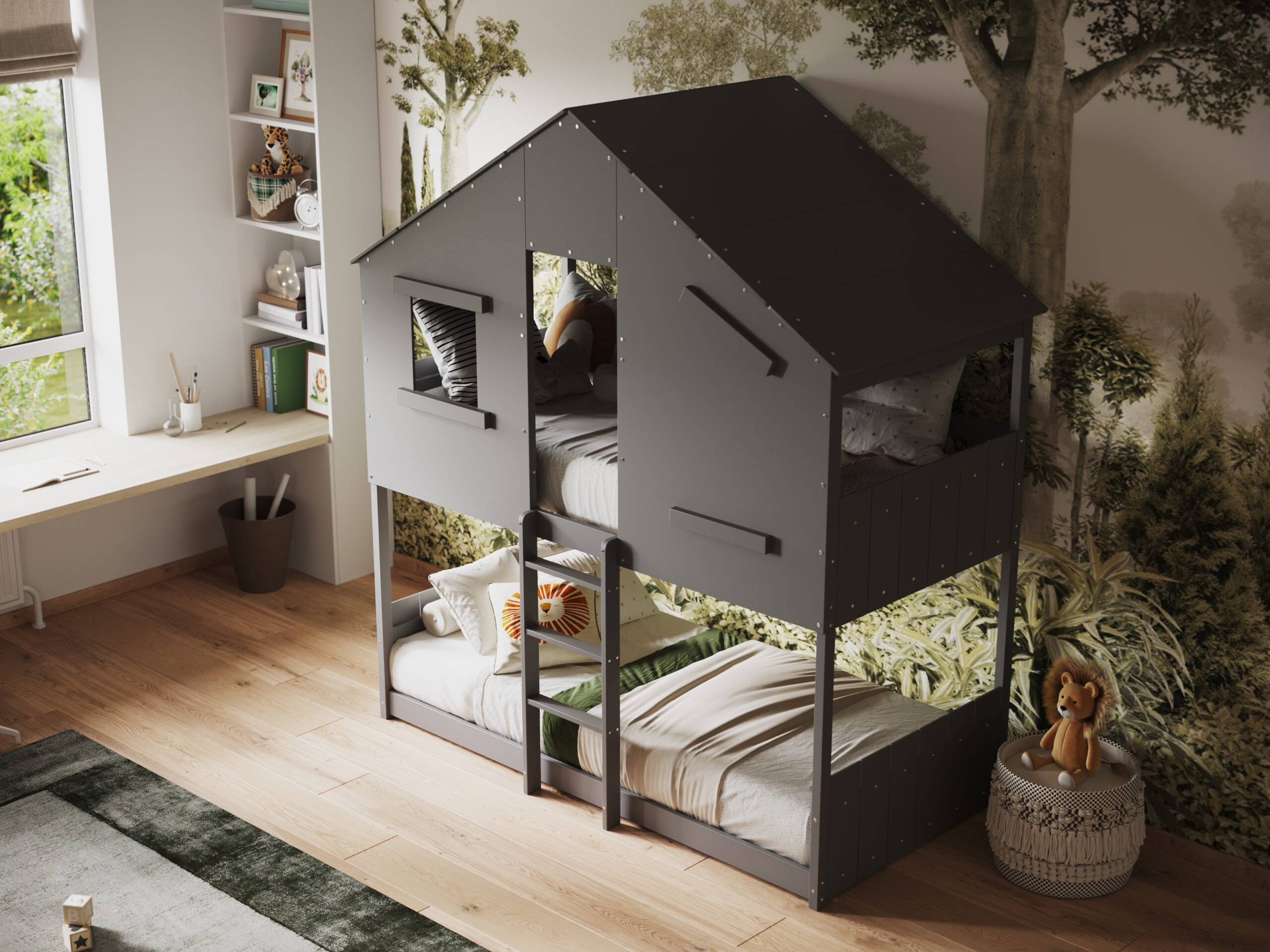
Pictured: Jungle House Bunk Bed – Grey
Encourage Independence
Allowing younger children to choose their own supplies like a backpack can encourage them to keep it clean and tidy, as when children have a say in choosing their supplies they develop a sense of ownership and are more likely to look after their belongings. Involving them in age-appropriate chores like making up their lunchbox or unloading the dishwasher can also encourage responsibility and self-sufficiency.
Encouraging independence not only helps your child develop life skills but also builds their confidence in themselves. These skills will serve them well during the school year and beyond.
Celebrate Milestones
Celebrating throughout the year can boost your child’s motivation and make school feel like a positive step forward. Milestones can be based on a huge variety of thing such as:
- Passing tests
- Extracurricular activities
- Personal growth and achievements
Celebrating with your child – for example, by making their favourite meal or taking them to a fun activity – helps them feel accomplished and keep going.
A Final Checklist
Follow the list below to set up great habits for the year ahead:
- Gather Essential Supplies: Ensure your child is equipped with necessary school items, such as stationery and a backpack, to start the year prepared.
- Establish a Consistent Routine: Set a regular schedule for bedtime and morning activities to help your child adjust smoothly to the school timetable.
- Create a Dedicated Study Space: Designate a quiet, organised area for homework and study to encourage focus and productivity.
- Utilise a School Planner: Teach your child to use a planner to keep track of assignments, deadlines, and extracurricular activities.
- Prioritise Healthy Eating: Encourage balanced meals and snacks to support your child’s energy levels and concentration.
- Communicate with Teachers: Stay engaged with your child’s educators to monitor progress and address any concerns early on.
- Organise the Entryway: Keep the area where school items are stored neat to make mornings more efficient.
Advice for Parents:
Preparation is essential in fostering a successful school year. By setting routines and providing support, you help build your child’s confidence and readiness to face new challenges. Embrace this opportunity to create a positive and enriching educational experience for your child. Here’s to a successful and rewarding school year!
Frequently Asked Questions
Why is it important to gather essential school supplies before the school year starts?
It’s crucial to gather essential school supplies before the school year starts because it sets students up for success by ensuring they have everything they need for their studies. Being prepared helps reduce stress and boosts confidence for the year ahead.
How can establishing a consistent routine benefit my child?
A consistent routine can really help your child by reducing anxiety and improving their focus, while also giving them a sense of safety. This structure makes it easier for them to deal with surprises when they come up.
Why should my child use a school planner?
Your child should use a school planner because it fosters essential time management and organisation skills, helping them keep track of assignments and reducing procrastination for better academic success.
What are some tips for managing screen time for my child?
To effectively manage your child’s screen time, set clear limits and use parental controls to keep an eye on content. Encourage them to engage in non-screen activities like reading or outdoor play for a balanced routine.
How can I help my child address first-day nerves?
To help your child with first-day nerves, consider touring the school together, meeting teachers in advance, and encouraging them to share their feelings. Highlighting the excitement of reconnecting with old friends and making new ones can also make a big difference.

